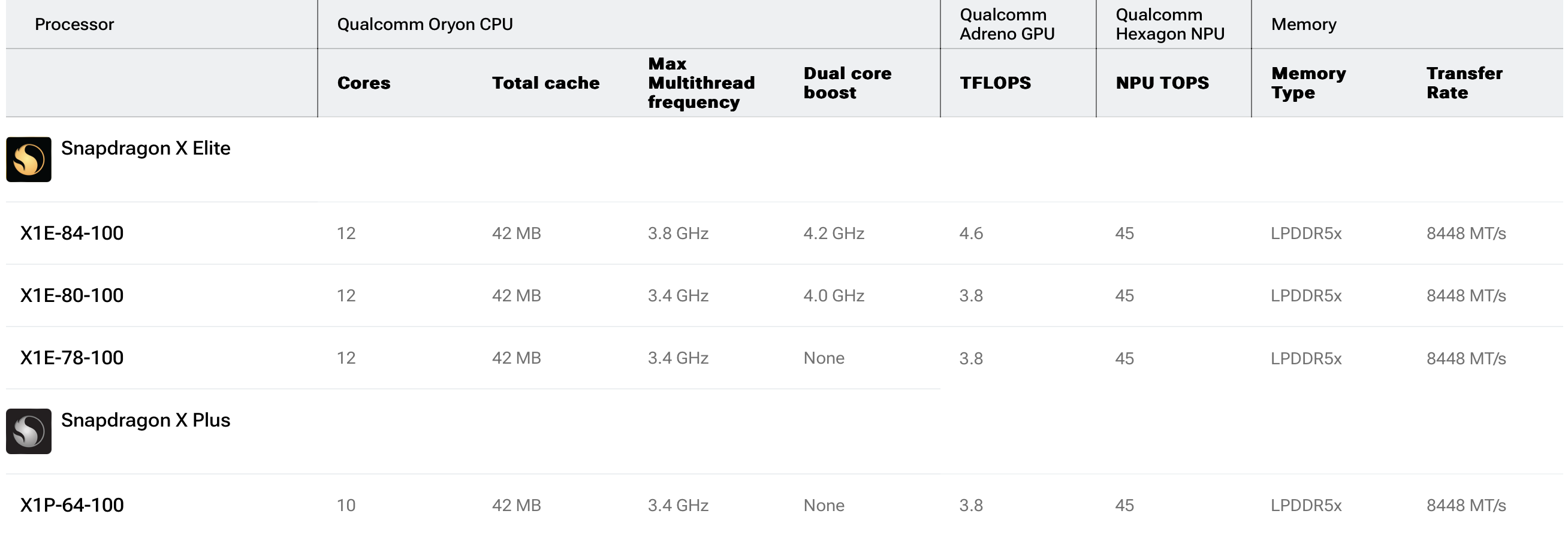
Competing with Apple Silicon: How Snapdragon X Showcases Qualcomm'n's Technological Breakthrough

Competing with Apple Silicon: How Snapdragon X Showcases Qualcomm’n’s Technological Breakthrough
The ARM-based Apple Silicon platform has continually put Windows PCs to shame. Now, Qualcomm is finalizing its Snapdragon X platform, which promises to outperform Apple latest M3 chip and bring the full benefits of the ARM architecture to PC users.
There are already a number of ARM-based Windows PCs on the market. Most of them are powered by Qualcomm’s old Snapdragon 8cx chips, though some are powered by processors from other brands. In any case, all attempts to create a compelling ARM-based Windows PC have ended in semi-failure. This is partially due to Microsoft’s sluggish Windows on ARM development, though it’s also a symptom of unpowered ARM desktop chips. Qualcomm can’t force any action from Microsoft, but it can offer a more compelling ARM processor. That’s the goal behind the new Snapdragon X lineup, which was first announced in late 2023.
We previously caught wind of the Snapdragon X Elite , a flagship processor made to rival Apple Silicon. Now, Qualcomm is filling out its ARM desktop processor lineup with the mid-range Snapdragon X Plus. The company has also revealed a set of specs and benchmarks for its Snapdragon X catalog, and the results are impressive, at least on paper.

Qualcomm
There are three distinct Snapdragon X Elite SKUs, all of which feature 12 cores. Meanwhile, the single Snapdragon X Plus chip has just 10 cores. Oddly, these are all high-performance cores—Qualcomm claims that the dedicated efficiency cores used in Apple Silicon chips are not necessary.
All Snapdragon X chips utilize LPDDR5 memory and PCIe 4.0 storage. The top two X Elite processors include Dual Core Boost technology for a maximum multi-core frequency of 4.2 GHz and 4.0 GHz, respectively. For reference, Apple’s M3 Max boasts up to 4.06 GHz performance, though numbers on a sheet of paper aren’t always an accurate indication of real-world performance.
Anyway, Qualcomm isn’t really competing with Apple Silicon. The Snapdragon X platform needs to match (or outperform) the x86 processors that are typically used in high-end Windows machines. It seems that Qualcomm has achieved this goal, particularly with iGPU performance , which appears to outperform the Intel Core Ultra 7 155H by 36% (all while consuming 50% less power during graphically-intensive tasks).
And, to no one’s surprise, Snapdragon X contains a dedicated neural processing unit (NPUs) for AI tasks. Qualcomm promises 45 tera operations per second (TOPS) from its NPU. TOPS is an arbitrary description of AI performance, so these specs are difficult to analyze in any meaningful way. The important thing is that Snapdragon X, like Intel Core Ultra and AMD Ryzen 8000-series processors, are equipped for AI tasks.
Thin and light laptops will benefit the most from Snapdragon X’s iGPU performance. The first machines that utilize the Snapdragon X platform will be marketed in a way that’s reminiscent of the MacBook Air—a super-portable machine with a great battery life and enough power for professional tasks or gaming. Pricing for Snapdragon X PCs may also draw comparisons with Apple’s MacBook Air. However, it seems that the lowest-end Snapdragon X Elite and X Plus could dip into the mid-range price bracket.
The first Snapdragon X PCs will begin launching in mid-2024 . Samsung will be among the first to adopt this platform, as it has already announced the Galaxy Book 4 Edge equipped with Snapdragon X Elite. But we aren’t sure about any other manufacturers, and Microsoft’s snails-pace Windows on ARM development put a damper on Snapdragon X adoption.
Source: Qualcomm
- Title: Competing with Apple Silicon: How Snapdragon X Showcases Qualcomm'n's Technological Breakthrough
- Author: Jeffrey
- Created at : 2024-08-30 09:03:34
- Updated at : 2024-08-31 09:03:34
- Link: https://some-knowledge.techidaily.com/competing-with-apple-silicon-how-snapdragon-x-showcases-qualcommns-technological-breakthrough/
- License: This work is licensed under CC BY-NC-SA 4.0.
